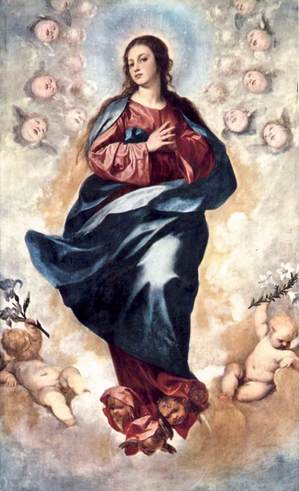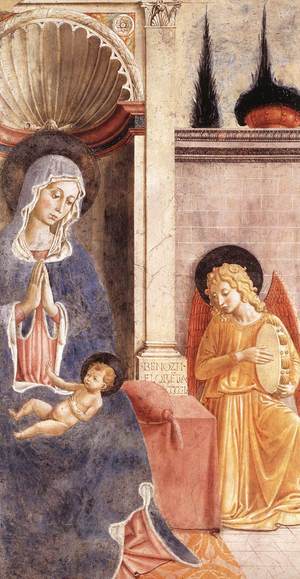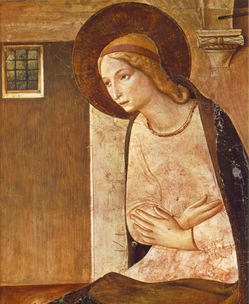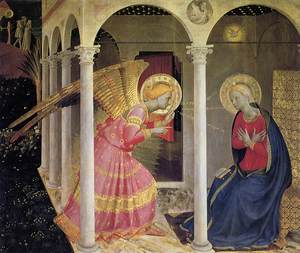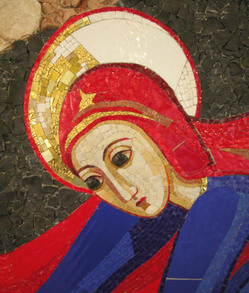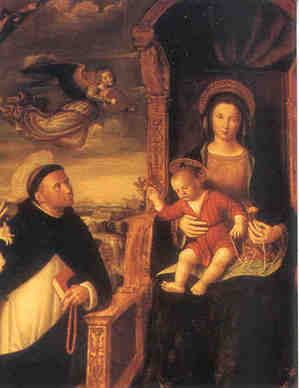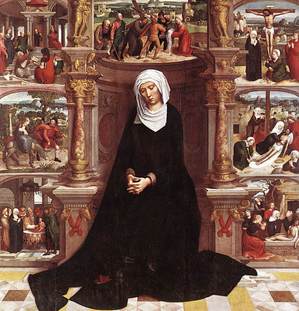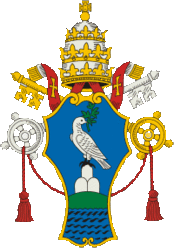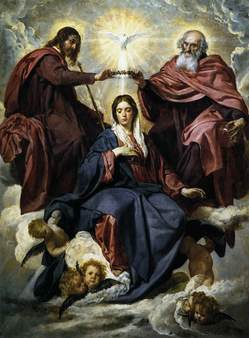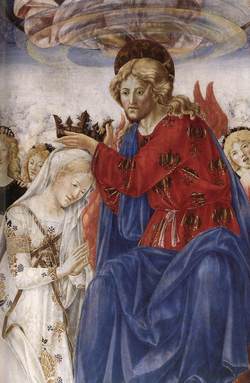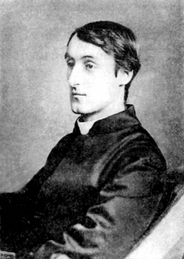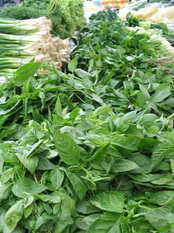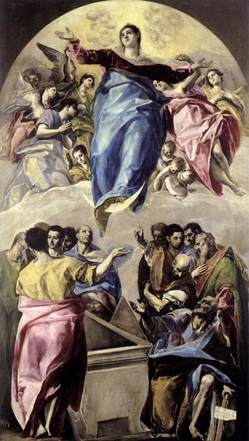The devotion I have to praying the Rosary comes from my connection with Our Lady of Pompeii Church, East Haven, Connecticut. The Church ladies as my mother called them, instilled in me–along with the Sisters of the Holy Family of Nazareth–a deep love of the Rosary. These ladies communicated to me the experience of the Rosary being a powerful tool of prayer. Some speak of the Rosary as the divine tool that decapitates the head of evil. Our Lady of Pompeii Church remains special to me because it is my family’s parish, where my parents were married and where I was Baptized.
 Pope John Paul II said of Longo at his beatification: “Rosary in hand, Blessed Bartolo Longo says to each of us: ‘Awaken your confidence in the Most Blessed Virgin of the Rosary. Venerable Holy Mother, in You I rest all my troubles, all my trust and all my hope!'” And of himself, Blessed Bartolo said: “I wish to die a true Dominican tertiary in the arms of the Queen of the Rosary with the assistance of my holy Father Saint Dominic and of my mother Saint Catherine of Siena.” Blessed Bartolo is a wonderful example of a saintly man who is husband and father.
Pope John Paul II said of Longo at his beatification: “Rosary in hand, Blessed Bartolo Longo says to each of us: ‘Awaken your confidence in the Most Blessed Virgin of the Rosary. Venerable Holy Mother, in You I rest all my troubles, all my trust and all my hope!'” And of himself, Blessed Bartolo said: “I wish to die a true Dominican tertiary in the arms of the Queen of the Rosary with the assistance of my holy Father Saint Dominic and of my mother Saint Catherine of Siena.” Blessed Bartolo is a wonderful example of a saintly man who is husband and father.
Today is also the feast of Blessed Bartolo Longo, the author of the following prayer, the Supplica, composed 125 years ago, is always prayed at noon on the first Sunday of October.
Petition to Our Lady of the Rosary of Pompeii
Blessed Bartolo Longo
In the name of the Father and of the Son and of the Holy Spirit. Amen.
O August Queen of Victories, O Sovereign of Heaven and Earth, at whose name the heavens rejoice and the abyss trembles, O glorious Queen of the Rosary, we your devoted children, assembled in your Temple of Pompeii, on this solemn day, pour out the affection of our heart and with filial confidence express our miseries to You.
From the Throne of clemency, where You are seated as Queen, turn, O Mary, your merciful gaze on us, on our families, on Italy, on Europe, on the world. Have compassion on the sorrows and cares which embitter our lives. See, O Mother, how many dangers of body and soul, how many calamities and afflictions press upon us.
O Mother, implore for us the mercy of your divine Son and conquer with clemency the heart of sinners. They are our brothers and your children who cause the heart of our sweet Jesus to bleed and who sadden your most sensitive Heart. Show all what you are, the Queen of Peace and of Pardon.
Hail Mary
It is true that, although we are your children, we are the first to crucify again Jesus into our heart by our sins and we pierce anew your heart.
We confess it: we are deserving of the most severe punishments but remember that, on Golgotha, You received with the divine Blood, the testament of the dying Savior, who declared You to be our Mother, the Mother of sinners.
You then, as our Mother, are our Advocate, our Hope. And we raise our suppliant hands to You with sighs crying: “Mercy!”
O good Mother, have pity on us, on our souls, on our families, on our relatives, on our friends, on our deceased, especially on our enemies, and on so many who call themselves Christian and yet offend the Heart of your loving Son. Today we implore pity for the misguided Nations, for all Europe, for all the world, so that it may return repentant to your heart. Mercy on all, O Mother of Mercy!
Hail Mary
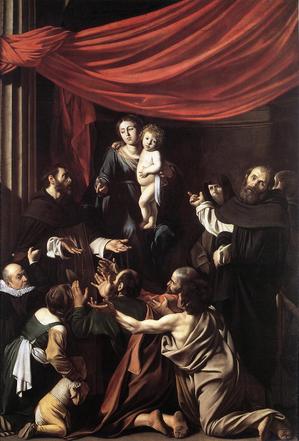 Kindly deign to hear us, O Mary! Jesus has placed in your hands all the treasures of His graces and His mercies. You are seated a crowned Queen, at the right hand of your Son, resplendent with immortal glory above all the Choirs of Angels. You extend your dominion throughout heavens and the earth and all creatures are subject to you. You are omnipotent by grace and therefore You can help us. Were You not willing to help us, since we are ungrateful children and undeserving of your protection, we would not know to whom to turn. Your Mother’s heart would not permit to see us your children, lost. The Infant whom we see on your knees and the mystical Rosary which we gaze at your hand, inspire confidence in us that we shall be heard. And we confide fully in You, we abandon ourselves as helpless children into the arms of the most tender of mothers, and on this very day, we expect from You the graces we so long for.
Kindly deign to hear us, O Mary! Jesus has placed in your hands all the treasures of His graces and His mercies. You are seated a crowned Queen, at the right hand of your Son, resplendent with immortal glory above all the Choirs of Angels. You extend your dominion throughout heavens and the earth and all creatures are subject to you. You are omnipotent by grace and therefore You can help us. Were You not willing to help us, since we are ungrateful children and undeserving of your protection, we would not know to whom to turn. Your Mother’s heart would not permit to see us your children, lost. The Infant whom we see on your knees and the mystical Rosary which we gaze at your hand, inspire confidence in us that we shall be heard. And we confide fully in You, we abandon ourselves as helpless children into the arms of the most tender of mothers, and on this very day, we expect from You the graces we so long for.
Hail Mary
One last favor we now ask You, O Queen, which You cannot refuse us on this most solemn day. Grant to all of us your steadfast love and in a special manner your maternal blessing.
We shall not leave You until You have blessed us. Bless, O Mary, at this moment, our Holy Father. To the ancient splendors of your Crown, to the triumphs of your Rosary, whence you are called the Queen of Victories, add this one also, O Mother: grant the triumph of Religion and Peace to human Society. Bless our Bishops, Priests and particularly all those who are zealous for the honor of your Sanctuary. Bless finally all those who are associated with your Temple of Pompeii and all those who cultivate and promote devotion to the Holy Rosary.
O Blessed Rosary of Mary, sweet Chain which binds us to God, Bond of love which unites us to the Angels, Tower of salvation against the assaults of hell, safe Port in our universal shipwreck, we shall never abandon You. You will be our comfort in the hour of agony: to You the last kiss of our dying life. And the last word from our lips will be your sweet name, O Queen of the Rosary of Pompeii, O dearest Mother, O Refuge of Sinners, O Sovereign Consoler of the Afflicted. Be Blessed everywhere, today and always, on earth and in Heaven. Amen.
Salve Regina
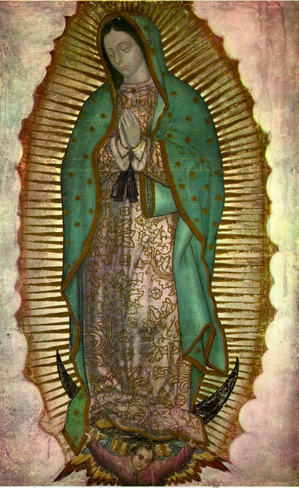 A great sign appeared in the sky, a woman clothed with the sun, with the moon under her feet, and on her head a crown of twelve stars.
A great sign appeared in the sky, a woman clothed with the sun, with the moon under her feet, and on her head a crown of twelve stars.